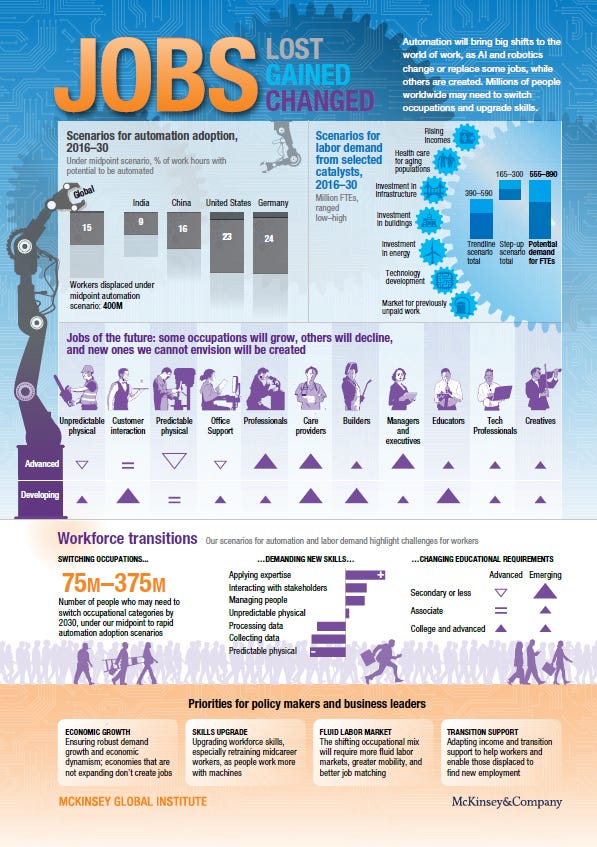AI Uprising? Exploring the Impact of ChatGPT on Job Markets
ChatGPT and the AI Revolution

AI will not take your job but a person knowing AI will!
Dear Readers,
Welcome to this edition of our newsletter, where we delve into the fascinating and sometimes concerning realm of Artificial Intelligence (AI) and its potential impact on our jobs.
The question on many minds is whether AI, particularly technologies like ChatGPT, will replace or transform job markets as we know them. It's a pertinent concern and one that warrants a closer examination.
The rise of AI, particularly machine learning and natural language processing has undoubtedly shifted the landscape of numerous industries.
AI technologies like ChatGPT, developed by OpenAI, have showcased incredible capabilities in understanding and generating human-like text. The concern about job displacement due to AI is not unfounded, and various studies have addressed this concern.
A report by the McKinsey Global Institute estimated that as much as 45% of activities individuals are paid to perform could be automated using existing technologies.
However, the report also suggests that only about 5% of jobs could be fully automated. This highlights a more nuanced reality where jobs are transformed rather than simply replaced.
AI's Impact on Employment can be Segmented into Three Main Categories:
Automation of tasks
In terms of automation, routine and repetitive tasks are more susceptible to being replaced by AI.
Tasks such as data entry, customer support, and certain types of analysis can be effectively performed by AI, including ChatGPT, leading to potential job displacement.
Augmentation of human capabilities
However, AI's ability to augment human capabilities cannot be overlooked. These technologies can work alongside humans, increasing efficiency and productivity. For instance, in healthcare, AI can assist doctors in diagnosing diseases or in manufacturing, where it can optimize production processes.
Creation of new industries and job categories
Moreover, the evolution of AI gives rise to new job categories and industries. These include roles such as AI trainers, ethicists specializing in AI, and various other positions that directly result from AI technologies.
Impact of AI on Job Markets.
When considering the potential impact of AI on job markets, it's crucial to address the reskilling and upskilling needs of the workforce.
The World Economic Forum suggests that by 2025, over half of all employees will require significant reskilling and upskilling to meet the demands of the changing job market.
The workforce is automating faster than expected, displacing 85 million jobs in the next five years.
The robot revolution will create 97 million new jobs, but communities most at risk from disruption will need support from businesses and governments.
The arrival of AI doesn't necessarily mean a wholesale replacement of human workers.
Instead, it calls for a shift in the skills required to remain competitive in the job market. Skills like creativity, critical thinking, emotional intelligence, and adaptability will become increasingly valuable in the AI-driven economy.
As we navigate this technological revolution, individuals, organizations, and policymakers must invest in education and training to ensure a smooth transition into this new era.
Thank you for joining us in this exploration of the impact of AI on the job market. Stay tuned for more insightful discussions in our future newsletters.
Warm regards,
Anshul Kumar



